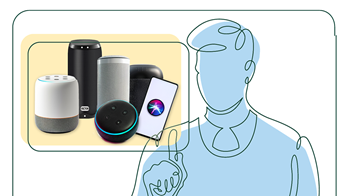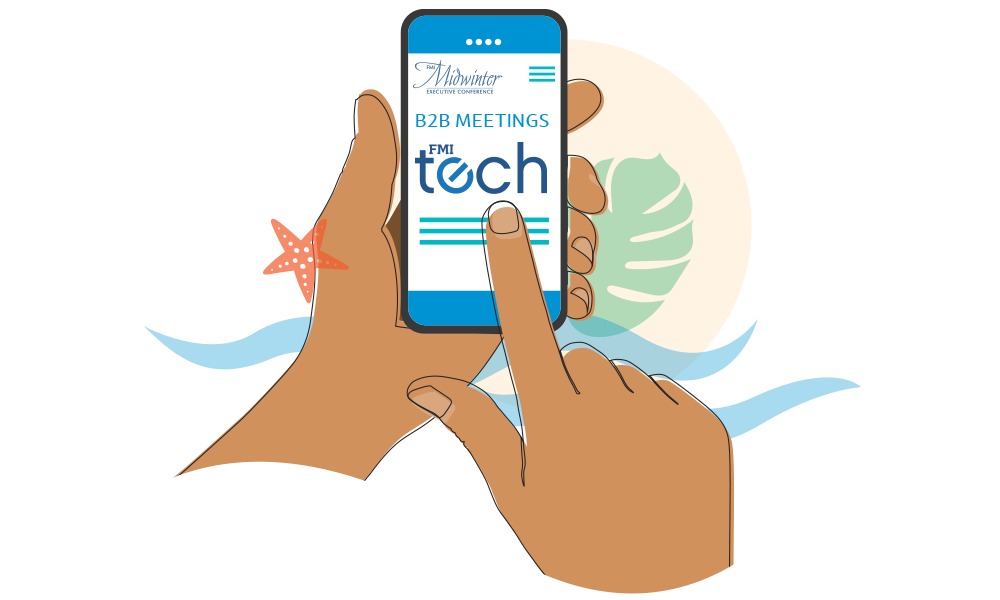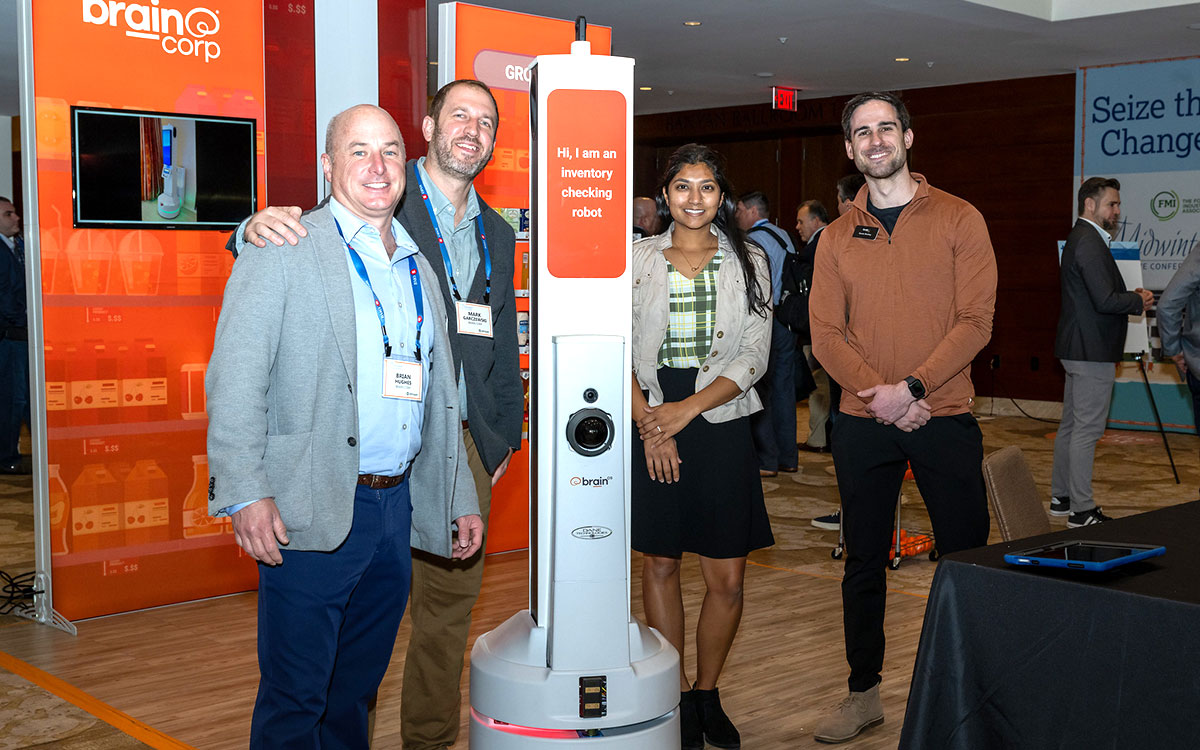This is the fourth installment of FMI's Technology Blog Series, which explores digital innovations for the food industry and shares compelling insights from our research.
By: Doug Baker, Vice President, Industry Relations, FMI

Personal digital assistants (PDAs), once the stuff of science fiction, have become integral tools in everyday activities. The concept of a personal digital assistant has evolved since the 1990s and early 2000s. PDAs, now commonly known as virtual assistants, are software-based tools employing artificial intelligence and natural language processing to execute tasks, respond to inquiries and offer information or aid to users.
These AI-powered helpers use advanced algorithms and machine learning to tailor recommendations based on past purchases, preferences and dietary restrictions. This saves time and increases customer satisfaction by ensuring shoppers find products that meet their needs.
How PDAs Enhance the Grocery Shopping Experience
- Shopping Lists and Meal Planning: PDAs help shoppers create lists based on their dietary preferences, previous purchases and meal plans. They can suggest recipes based on available ingredients and even plan weekly meals.
- Price Comparison: Personal assistants can scan multiple online and local grocery stores to compare prices for the same items, helping consumers find the best deals and save money.
- Smart Recommendations: By analyzing past purchases and user preferences, PDAs can offer personalized product recommendations, including alternatives or substitutes for items out of stock or unavailable.
- Nutritional Information: PDAs can provide nutritional information for products, helping users make informed choices based on their dietary needs and restrictions.
- Voice Commands and Hands-Free Operation: Voice assistants allow users to add items to their shopping lists, search for products or place orders using voice commands, making the process more convenient, especially while cooking or driving.
Strategies for Food Retailers
By adapting to the constant transformation of consumer behaviors influenced by PDAs, food retailers can position themselves for success in the digital era of grocery shopping by taking several proactive steps:
- Invest in Digital Infrastructure: Retailers should invest in robust digital platforms that can integrate with PDAs. This includes developing user-friendly mobile apps and websites that offer features such as online ordering, personalized recommendations and real-time inventory updates.
- Focus on Customer Experience: Prioritize customer experience across all touchpoints, from browsing products online to receiving deliveries or pickups. Seamless, frictionless experiences will encourage repeat business and foster customer loyalty in the competitive grocery market.
- Optimize Supply Chain and Inventory Management: Streamline supply chain processes and invest in inventory management systems that provide real-time product availability updates. This ensures that customers receive accurate information and reduces the likelihood of out-of-stock situations.
- Adapt Marketing Strategies: Reach consumers through digital channels, including social media, email campaigns and targeted advertisements. Highlight PDAs' convenience, savings, and personalized experiences to attract and retain customers.
- Embrace Innovation: Stay ahead by exploring emerging technologies such as augmented reality (AR) for virtual shopping experiences or voice-commerce integrations to cater to changing consumer preferences.
Personal digital assistants are revolutionizing the food industry by providing personalized shopping experiences, optimizing operations and enhancing customer engagement. The benefits underscore their indispensable role in shaping the future of grocery retailing.
FMI hosts initiatives and opportunities for collaboration in technology, including an all-company approach related to mobility, payments, data security, cloud computing, in-store innovation and social commerce.
The FMItech Directory provides a comprehensive list of partners and suppliers focused on technology for automation strategies, ecommerce, supply chain, food safety and more.


 Industry Topics address your specific area of expertise with resources, reports, events and more.
Industry Topics address your specific area of expertise with resources, reports, events and more.
 Our Research covers consumer behavior and retail operation benchmarks so you can make informed business decisions.
Our Research covers consumer behavior and retail operation benchmarks so you can make informed business decisions.
 Events and Education including online and in-person help you advance your food retail career.
Events and Education including online and in-person help you advance your food retail career.
 Food Safety training, resources and guidance that help you create a company food safety culture.
Food Safety training, resources and guidance that help you create a company food safety culture.
 Government Affairs work — federal and state — on the latest food industry policy, regulatory and legislative issues.
Government Affairs work — federal and state — on the latest food industry policy, regulatory and legislative issues.
 Get Involved. From industry awards to newsletters and committees, these resources help you take advantage of your membership.
Get Involved. From industry awards to newsletters and committees, these resources help you take advantage of your membership.
 Best practices, guidance documents, infographics, signage and more for the food industry on the COVID-19 pandemic.
Best practices, guidance documents, infographics, signage and more for the food industry on the COVID-19 pandemic.
